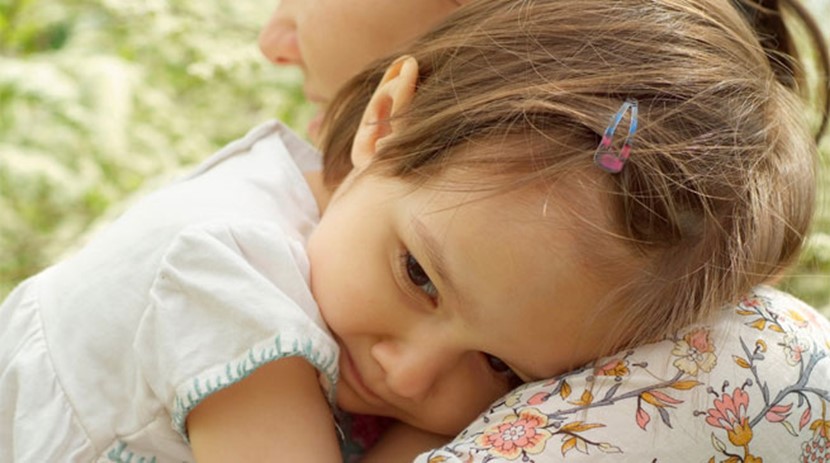Parenting through grief

Parenting a young family naturally directs our focus to new life. Sometimes, however, this season also includes saying goodbye to loved ones at the end of their life. Family and grief counsellor Michelle Parkinson offers some advice for helping parents guide children through grief, while processing their own emotions at the same time.
Working through grief as a family
Take care to be emotionally available to the other family members - try not to shut emotions off and be staunch. Sometimes sitting together, hugging or touching in some way, without talking can be wonderfully healing. Words can’t always express the loss. You could try listening to a special song together, lighting a candle to remember. With your children you could ask God to take care of the loved one (if that fits with family beliefs). Talk about tears and crying, and talk about what your family members believe about death and what happens after death.
Too young to see or understand?
I don’t think there are age appropriate guidelines around death and funerals, I believe this depends on the child and the family and is a decision that the parents can make in discussion with the child. Parents will need to make a judgment call in the end on whether a child would benefit from seeing the deceased’s body or attending a funeral. Careful discussion around what to expect from these things can remove some of the element of shock for the child. Children will take cues from a parent on how to respond to all these events - if a child sees a parent who is mourning but not traumatized by a loved one’s body then that sends a clear message to the child that the situation is ok. In fact, a child can witness in any of these situations a positive and loving expression of grief. It is also important for the parent who is grieving the loss of their loved one to consider their own needs, as well as the needs of the child. Like parenting in general, it is a balancing act. Are you going to be able to do your own processing with your child present?
Be real
It’s important to be as real as you can about what’s happening, while also using language and concepts that a child is developmentally able to understand. This is because if a child doesn’t have an understanding of what is happening, they will create their own story around it, and their own story can actually be more horrific and terrifying than the truth. (I think of Maya Angelou when she says in her autobiography that she believed at seven years old, her words had killed a man, and so she stopped speaking for many years).
Taking care of you
So important! Ideas to take care of yourself might be a bath, a hair cut, coffee with a friend, time without children to journal/walk/exercise...saying no to extra stuff and making sure you get to bed early…. whatever YOU need. I would add that part of that self care is giving yourself time to grieve and process the changes that have happened.
Honouring your loved one
For a person of any age, there is value in being able to remember a loved one, acknowledge their significance, and also to have a kind of ritual around the transition or change. It can be difficult for someone to accept a death if there is no ceremony and symbolism to mark it. For children who are old enough, writing a letter to the loved one, or drawing a picture can be helpful. This letter can be ‘sent’ or put in a casket or floated into the sea in a bottle. It can also be very significant for the child to have something physical of the loved one to hold on to - photos, clothes, momentos.
Family Christmas tradition
Christmas (or another annual celebration) can be a good time to remember loved ones who have died. Amidst all the joy and presents and food you can take a few minutes to light a candle as a family and have a moment of silence followed by some discussion of what we remember about our loved one. This draws the family together and includes loved ones who have died.
Michelle Parkinson has a Masters in Counselling. She divides her time between caring for her three children and counselling at both an Auckland secondary school and privately through her practice, wainuicounselling.co.nz

